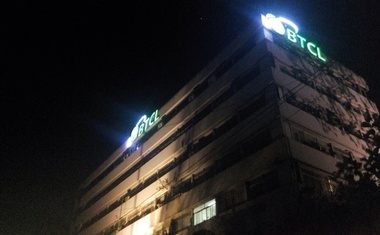The Bangladesh Telecommunications Company Ltd (BTCL) is facing allegations of overlooking a mandatory tender process in awarding contract for installation of transmission systems for the country’s second submarine cable.
The evaluation committee for the tender found a Turkish company fit for the job and forwarded its recommendation to the BTCL for issuing a work order.
The BTCL, however, cancelled the tender and signed a deal with state-run phone equipment company Telephone Shilpa Sangstha (TSS), which partnered up with an Indian company to supply and install the equipment.
Telecom Secretary Faizur Rahman Chowdhury is the ex-officio chairman for the Boards of both BTCL and TSS.
The government’s Central Procurement Technical Unit (CPTU) says BTCL has violated the regulations in both scrapping the tender process as well as in signing a new deal for the job.
“The process they (BTCL) followed to cancel the tender and bringing in another company through TSS is not in line with the regulations,” CPTU Director General Faruque Hossain told bdnews24.com.
Turkey’s Netas Telekomunikasyon was found ‘technically responsive’ by the body formed to evaluate the bidders.
The Istanbul-based company’s representative Ahmad Mushfeq Anam objected to the scrapping of the tender process.
“There were no valid reason under the Public Procurement Act, for which a tender could be scrapped, but the (BTCL) Board led by Faizur Rahman Chowdhury did it.
“Moreover, they have attempted to award the job to an inexperienced company without a proper tender process,” he told bdnews24.com.
Telecoms Secretary Chowdhury declined comments saying it was a sub judice matter.
In December, the High Court scrapped the deal between BTCL and TSS following a petition. It also ordered floating a fresh global tender.
The decision has been challenged and is now pending with the Appellate Division.
On Apr 27, 2016, the BTCL floated the tender, when three companies submitted proposals.
BTCL’s technical sub-committee evaluated the proposals and found Netas as the only one to be ‘technically responsive.’
On Sep 15, BTCL’s tender evaluation committee forwarded its recommendation to issue a work order to the Turkish company.
BTCL’s Board met on Sep 27 and formed a three-member panel, comprising of its directors, to go through the evaluation report.
The panel presented its findings during a Board meeting on Oct 15, when it said they found BTCL evaluation committee to be ‘irresponsible’ and recommended to cancel the procurement proposal.
Without hearing out the evaluation committee’s explanation, the BTCL Board decided to scrap it and informed it in a letter on Nov 1.
While the tender process was underway, TSS opened the process to get the job citing a ‘strategic partnership’ with an Indian company.
In May, TSS filed a proposal for supplying the required equipment from Bengaluru-based Tejas Networks. An amended proposal was later submitted to the BTCL.
In its proposal, TSS said that Tejas was a manufacturer and claimed it supplied equipments for US network strategy and technology company, Ciena Corporation.
However, it has been found in a letter from the Maryland-based company that Tejas has never manufactured equipment for them.
But another incident points to BTCL’s eagerness to award the job to Tejas.
In August 2016, Telecoms Secretary Chowdhury went to India to visit Tejas’ plant.
Later in November, top officials of three other state-owned companies under the telecoms ministry went to Bengaluru to visit the company.
They are Bangladesh Submarine Cable Company’s Managing Director Monowar Hossain, the then BTCL acting Managing Director Kabir Hossain Bhuiyan and TSS Managing Director Kabir Hossain.
In a letter written to the secretary after returning, TSS top official Hossain said Tejas was well capable of supplying the required equipment.
The process for awarding the job instead of a tender picked up pace since then. The BTCL took only four working days to sign a deal with TSS for the work order.
The government’s public procurement arm, however, finds it ‘unacceptable.’
“A single company cannot be included (in the procurement process) when an open tender is underway, because there’s a competition going on. It’s not acceptable and violates regulations,” said Central Procurement Technical Unit (CPTU) chief Faruque Hossain.
The CPTU director general also said he thinks the TSS cannot be the right choice.
“TSS cannot be the agency for this. The rules are clear; it’s only possible when a state-owned entity manufactures the equipment they propose to supply. They cannot act as a broker,” he told bdnews24.com.
Hossain said the provision is meant to promote state-owned entities. “But that doesn’t mean, they will buy it from others and make profits as a broker.”
Source: bdnews24










